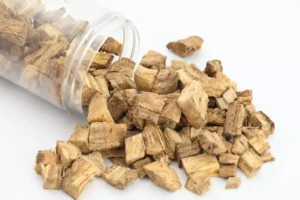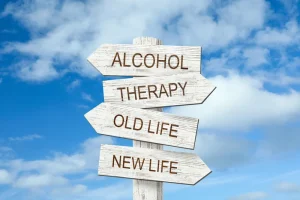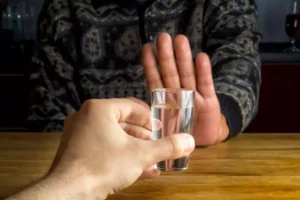
Such factors including head injury, neurochemistry, physiological reactivity, metabolism, and genetics. The study concluded that alcohol increased the odds of physical aggression in those men who had high trait anger and poor anger management skills. It also noted that sexual aggression was higher with alcohol, even in men with low trait anger and reasonable anger management skills. Among the many studied physiological and behavioral effects of alcohol is disinhibition, or reduced control over impulses or urges after intoxication. Disinhibition can make you unable to suppress or change an act of aggression that is not appropriate for the situation you’re in.
Alcohol use disorder
If no one can defuse the tension, they may become an aggressor, escalating the situation to a violent one. To curb alcohol-fueled rage, it helps to know how you alcoholism and anger respond to drinking. And you may need to take steps to stop or limit alcohol consumption. Do you experience a difference depending on how much you drink?

How Music Therapy Works in Substance Abuse Treatment

But this is often easier said than done, and mean drunks can turn violent when provoked — meaning that if you share a living space with one, your safety should be your main priority. If you live with an alcoholic, it’s important to get them help. When they aren’t under the influence, you can try speaking openly with them about how their actions make you feel, how they’re affecting your family and why something needs to change.
Oar Health Member Stories: I Needed to Curb My Drinking But Didn’t Know How
Drinking, or even the anticipation of consuming alcohol, causes the production of dopamine. At first, drinking can often make someone feel giddy or euphoric. If you’ve ever noticed that you — or friends or family — have intense feelings or express extreme emotions or behavior while buzzed or drunk, you’re not imagining it. People known to have anger outbursts on alcohol can end up destroying relationships. Even the people who care about them the most can be unable or unwilling to continue to tolerate the abuse.
Why Does Drinking Release the Rage? Understand Alcohol-Related Anger and Aggression
Did you recently experience an incident that stemmed from your alcohol-related aggression? These situations likely spark emotions when you think about them — perhaps you feel embarrassed or ashamed. Many people who have an alternate personality when they drink look back on it clarity when they sober up.

Impulse control is affected, and individuals under the influence of alcohol may have a shorter fuse than they otherwise would. This is not to say that alcohol causes aggression, or serves to makes someone angry, in and of itself; however, it may be a contributing factor when it comes to difficulties controlling these emotions. https://ecosoberhouse.com/ In addition, alcohol abuse and addiction can result in poor anger management skills. Often, when children, spouses and other loved ones spend time close to someone who becomes abusive when they drink, their lives change for the worse. Anger management issues may be rooted in a specific mental health disorder in some cases.
Low Regard for Consequences
- Additionally, even people not struggling with a substance use disorder can experience anger and these other emotions.
- My colleagues and I have conducted several studies which support this idea.
- However, when you stop drinking and get sober, you can find new ambitions for your life.
- We know what drives alcohol users and abusers to continue drinking.
- Plus, we’re always introducing new features to optimize your in-app experience.
Ashwood Recovery, located in Boise, Idaho, provides outpatient treatment for co-occurring disorders, individual alcohol counseling, and family counseling. Alcoholism can lead to anger toward loved ones, among other issues. Whatever your struggle, we support you through the consequences and begin your recovery journey. If you find it hard to control your drinking or anger, consider professional help. Support groups or addiction counseling can tackle the underlying issues effectively. Various methods are available to manage anger and alcohol addiction.
If You Know You’re an Angry Drunk, What Can You Do?
When you live with or care for someone who becomes abusive when they’re intoxicated, the consequences may well be more than just hurt feelings. The existence of an angry “crazy drunk person” is often featured in TV shows and movies because of the rising drama and action they bring to an entertaining storyline. If we hang out with people who throw digs at each other (or at us) or normalize alcohol-induced aggression, it’s more likely to make an appearance. Research has shown that thought suppression may contribute to alcohol-related aggression. One study supporting this finding enlisted 245 men with a history of heavy episodic alcohol use (Berke et al., 2020).

- In summary, heavy drinking or chronic drinking alters brain chemistry in the short and long term.
- If you find it hard to control your drinking or anger, consider professional help.
- Therefore, people who tend to live in the now are more likely to make snap decisions when they’re intoxicated.
- Overall, exhibiting one or a combination of the above factors can increase your chances of becoming angry when intoxicated.
- Theories suggest that for certain people drinking has a different and stronger impact that can lead to alcohol use disorder.
- Dr. Dominic Parrott is a Professor of Psychology at Georgia State University and Executive Secretary for the International Society for Research on Aggression.
If you live with underlying anger challenges, for example, it may not be as noticeable when you’re sober because your frontal lobe allows you to manage your emotions and your behaviors. When you drink alcohol, those inhibitions are lifted, and if you’re feeling angry, you’re more likely to express it and do so in an exaggerated way. They don’t feel good about themselves, and they don’t believe in themselves either. Low self-esteem can cause someone to develop an alcoholic lifestyle.

 Les Articles de ce Blog
Les Articles de ce Blog